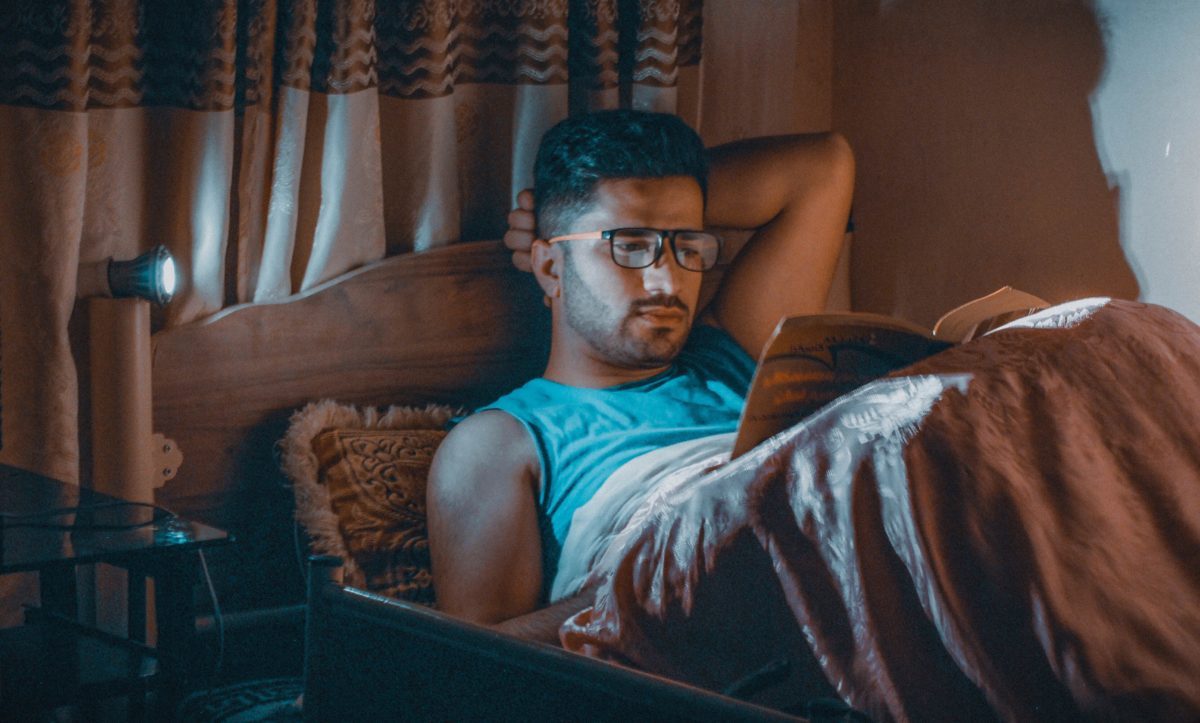Three Ways to Get The Sleep You Need

Photo by Awar Jahfar on Unsplash
Do you have trouble falling or staying asleep? Or do you find yourself not waking up feeling rested? You’re not alone! A third of US adults report that they usually get less than the seven hours that is recommended. According to the CDC, not getting enough sleep is linked with many chronic diseases and conditions, including diabetes, heart disease, obesity, and depression. Ditch the caffeine! Here are three tips that might just help you what your body needs.
Turn off those devices!
If you’re someone who has trouble sleeping but finds themselves sitting on their phone, scrolling through their news feed in the dark, stop! The number one most important thing you can do to improve how long and well you sleep is to put your phones, laptops and tablets down before you get into bed (yes that includes your TV, too!). Blue light is the artificial light that is provided by your digital devices. A study from the Division of Sleep and Circadian Disorders at Brigham and Women’s Hospital in Boston reports that blue light exerted by your phone and tablet may do more than take away from your precious hours in bed – it may increase your risk of harmful diseases and conditions. Try to put your devices away at least two hours before you head to bed – your mind and your eyes will thank you later!
Learn more about that sleep study by clicking here!
Fun in the Sun
You know those days when you spend the entire day at the beach to come home feeling exhausted? Well, it turns out that exposure to natural light (especially in the morning), helps to set your circadian rhythm, also according to the Division of Sleep and Circadian Disorders at Brigham and Women’s Hospital and Harvard Medical School. Your circadian rhythm is simply your 24-hour internal clock that tells your body when it is time to go to sleep and time to wake up. This system works best when you have regular habits, like going to bed at the same time each night. This is also the system to blame when your patterns are thrown off due to jet lag or day light savings.
Stay Cool
There is nothing better than getting into a bed with cool sheets on a warm night. And there’s a reason for this! Researchers believe if you sleep in a cooler environment, you can help your body fall into a restful sleep more easily. This includes your body temperature, as your circadian rhythm triggers your body’s temperature to drop when it’s time to sleep. Researchers from the University of Pittsburgh School of Medicine reported at the Associated Professional Sleep Societies (APSS) that keeping the brain cool may help people with insomnia to fall asleep faster and stay asleep longer.
Natural Sleep Remedies
If those three tips do not work, supplementation may be beneficial.
Melatonin is a hormone that regulates the body’s circadian rhythms, your body’s 24-hour clock that regulate your sleep-wake cycle. As a supplement, it re-calibrates your 24-hour body clock for shift workers or those who work nights. Excellent for jet lag and traveling.†
Valerian root has been used as a sedative and anti- anxiety treatment for more than 2,000 years. Extracts of the roots of valerian (Valeriana officinalis) are widely used for inducing sleep and improving sleep quality.†
L-Theanine, an extract from green tea, is excellent for persistent thoughts. Day or night, take for anxiety, panic and to calm down worrisome thoughts by increasing blissful alpha-waves in the brain, before bed or in the middle of the night.†